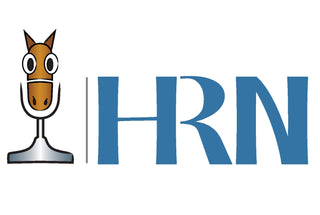Horses are majestic creatures admired around the world for their strength, grace, and versatility. Whether you're a horse owner, enthusiast, or simply curious, understanding how much a horse weighs is essential. Knowing a horse’s weight helps in proper feeding, health management, and selecting the right tack and equipment. But how much does a horse weigh? The answer varies significantly depending on the breed, age, and build of the horse.
In this article, we’ll explore the average weight of horses by breed, including popular types like the Quarter Horse, Draft Horse, Clydesdale, and Shire. We’ll also discuss how much a full-grown horse typically weighs compared to a baby horse and explain factors that influence a horse’s weight. Whether you want to learn how much a quarter horse weighs or the average weight of a draft horse, this guide covers it all.
Why Knowing Your Horse’s Weight Matters
Understanding your horse’s weight is more than just a number. It impacts:
-
Feeding: Proper diet depends on weight to avoid overfeeding or underfeeding.
-
Health care: Medication dosages, including dewormers and vaccines, require accurate weight estimates.
-
Training and performance: Weight affects endurance, speed, and strength.
-
Equipment fitting: Saddles, harnesses, and trailers must be suited to the horse’s size.
For these reasons, horse owners and professionals alike often need to know how much a full-grown horse weighs or how much a baby horse weighs for better care.
Average Weight of Horses: An Overview
Horses come in many shapes and sizes. Their weight can range dramatically from smaller breeds to heavyweight giants. Here’s a quick overview of some common horse categories:
-
Light riding horses: Typically weigh between 900 to 1,200 pounds.
-
Quarter horses: Average around 1,000 to 1,200 pounds.
-
Draft horses: Much larger, often 1,800 to 2,400 pounds.
-
Heavy draft breeds like Shire and Clydesdale: Can weigh over 2,000 pounds.
These weight differences reflect not just the size but also the purpose of the horse. Draft horses are bred for heavy labor, while lighter horses excel in riding and racing.
How much does a baby horse weigh?
Baby horses, or foals, grow quickly but start quite small. At birth, a foal typically weighs between 50 and 100 pounds, depending on the breed. For example, a Quarter Horse foal might weigh around 70-90 pounds, while draft foals are heavier, often 100 pounds or more.
Foals gain weight rapidly during their first year, nearly doubling in size by 6 months and reaching close to adult weight by 1 to 2 years. Monitoring weight gain in foals helps ensure healthy growth and proper nutrition.

Knowing these basics about horse weights sets the foundation. Next, we'll dive deeper into specific breeds and their average weights to provide you with detailed insights.
If you’re managing your horse’s health or just want to know more about these majestic animals, understanding their weight is crucial.
How Much Does a Quarter Horse Weigh?
The Quarter Horse is one of the most popular horse breeds in the United States. Known for their versatility, speed, and calm temperament, Quarter Horses are widely used in riding, ranch work, and competition.
A typical Quarter Horse weighs between 950 to 1,200 pounds (430 to 545 kilograms). Their compact, muscular build allows them to be powerful yet agile. How much a quarter horse weigh depends on factors like gender, age, and diet, but this range covers most healthy adult individuals.
Because of their medium size, Quarter Horses are easier to handle and feed compared to larger draft breeds, making them a favorite for many riders.
How Much Does a Draft Horse Weigh?
Draft horses are the heavyweights of the horse world. These large breeds were originally bred to pull heavy loads like plows, wagons, and carriages. Draft horses are muscular and solidly built, with broad chests and strong legs.
Typically, draft horses weigh between 1,800 and 2,400 pounds (820 to 1,090 kilograms). Their size varies by breed, but all draft horses fall well above the average horse weight.
Because of their size, draft horses require more food, space, and specialized care. Their weight also affects the types of equipment and trailers they need.
How much does a Clydesdale horse weigh?
One of the most famous draft breeds, the Clydesdale, is known for its impressive size and feathered legs. Originating from Scotland, Clydesdales have become popular worldwide as show horses and in parades.
A mature Clydesdale typically weighs between 1,800 and 2,000 pounds (820 to 910 kilograms). They usually stand around 16 to 18 hands tall (64 to 72 inches at the withers).
Their weight makes them strong enough for heavy labor, yet they are known for a gentle temperament.
How much does a Shire horse weigh?
The Shire is one of the largest and heaviest horse breeds in the world. Bred in England for farm and industrial work, Shires can tower in height and mass.
Adult Shire horses often weigh between 2,000 and 2,400 pounds (910 to 1,090 kilograms), with some individuals exceeding 2,500 pounds. They usually stand around 17 to 19 hands tall (68 to 76 inches).
Despite their immense size, Shires are known for their calm nature, making them popular even outside of farm work.

How Much Does a Full-grown Horse Weigh?
The weight of a full-grown horse varies widely depending on breed, diet, and health. On average, a full grown horse weighs about 900 to 2,400 pounds (410 to 1,090 kilograms).
Light riding horses like Arabians weigh closer to the lower end, while draft breeds like Shires and Clydesdales weigh towards the upper end.
Knowing how much does a full grown horse weigh helps owners plan feeding regimens, manage health, and ensure proper handling.
Factors Influencing Horse Weight
Several factors affect how much a horse weighs at any given time:
-
Breed: Larger breeds naturally weigh more.
-
Age: Young horses weigh less and grow over time.
-
Gender: Stallions are generally heavier than mares.
-
Diet and nutrition: Overfeeding can cause excess weight.
-
Exercise and activity: Active horses may weigh less due to muscle tone.
-
Health conditions: Illness or pregnancy affect weight fluctuations.
Regular weight monitoring is essential to maintain a healthy horse and prevent obesity or malnutrition.
How Much Does an Average Horse Weigh?
When people ask, "how much does a average horse weigh?" the answer can vary, but generally, the typical horse weighs between 900 and 1,200 pounds (410 to 545 kilograms). This range covers most common riding horses, including breeds like the American Quarter Horse, Thoroughbred, and Arabian.
Average weight is influenced by the horse’s frame and intended use. For example, racehorses tend to be leaner and lighter, while pleasure horses may carry more muscle and weight. Understanding this average range helps owners gauge their horse’s condition and health.
How to Estimate Your Horse’s Weight
Weighing a horse accurately requires a livestock scale, which isn’t always accessible. Fortunately, several practical methods exist to estimate weight:
Weight tape method
A weight tape is a special measuring tape marked with weight estimates based on a horse’s girth. To use:
-
Measure around the horse’s girth, just behind the front legs.
-
Read the corresponding weight from the tape.
Weight tapes provide a quick and reasonably accurate estimate but may vary by breed and body condition.
Weight calculation formula
Another common formula uses girth and length measurements:
Weight (lbs) = (Girth in inches)^2 × Length in inches ÷ 330
Where:
-
Girth = circumference around the horse’s barrel behind the front legs
-
Length = from point of shoulder to point of buttock
This formula can give a close approximation for many horse breeds.
Why knowing how much a baby horse weighs is important
For foals and yearlings, monitoring weight gain is critical for proper growth. Rapid weight loss or insufficient weight gain may indicate health problems.
Owners should regularly weigh baby horses, especially if they are orphaned or bottle-fed, to ensure they are developing correctly.

Common Myths About Horse Weight
There are a few misconceptions around horse weight that are worth addressing:
-
Myth 1: All draft horses weigh the same.
Fact: Draft horse weights vary significantly by breed and individual build. -
Myth 2: Weight tape measurements are 100% accurate.
Fact: Weight tapes provide estimates and should be used as guides, not exact measures. -
Myth 3: Overweight horses are always unhealthy.
Fact: Some breeds naturally carry more weight due to build; body condition score is a better health indicator.
Understanding these myths helps horse owners better manage their animals’ health and avoid unnecessary concerns.

Tips to Maintain a Healthy Horse Weight
Maintaining your horse’s ideal weight involves:
-
Feeding a balanced diet tailored to breed, age, and activity level.
-
Providing regular exercise to build muscle and burn excess calories.
-
Regularly monitoring weight and body condition.
-
Consulting with a veterinarian or equine nutritionist for tailored advice.
Keeping your horse in good weight supports longevity, soundness, and performance.
Conclusion
Understanding how much a horse weighs is vital for proper care, feeding, and health management. Horse weights vary widely by breed, from lighter Quarter Horses averaging around 1,000 pounds to massive draft breeds like Shires and Clydesdales exceeding 2,000 pounds. Even within breeds, age, gender, diet, and activity levels influence weight.
Whether you’re wondering how much a quarter horse weighs, how much a draft horse weighs, or how much a baby horse weighs, knowing these details helps ensure your horse stays healthy and happy. Regular weight monitoring through scales, weight tapes, or formulas is a practical approach for horse owners.
Ultimately, keeping your horse within a healthy weight range supports their performance, longevity, and overall well-being.
Horse Weigh Q&A
How much does a horse weigh on average?
Most horses weigh between 900 and 1,200 pounds, but this varies by breed and size.
How much do Quarter Horses weigh?
Quarter Horses typically weigh between 950 and 1,200 pounds.
How much do draft horses weigh?
Draft horses generally weigh from 1,800 to 2,400 pounds.
How much do Clydesdale horses weigh?
Clydesdales usually weigh between 1,800 and 2,000 pounds.
How much does a full-grown horse weigh?
Full grown horses vary widely, averaging from 900 to 2,400 pounds.










































